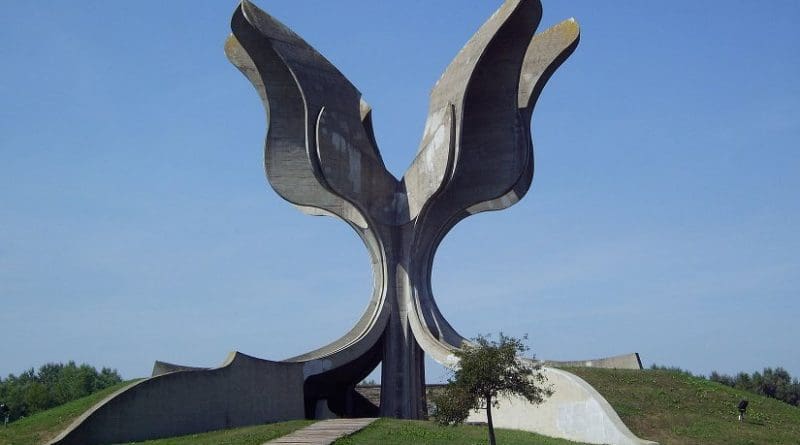Croatian Jews Boycott State-Run Holocaust Commemoration
By Sven Milekic
The coordinating body for all the Jewish communities in Croatia said it will not take part in the state-organised commemoration of International Holocaust Remembrance Day this Friday in protest against the government’s lack of action to deal with right-wingers putting up plaques that display WWII fascist slogans, among other recent incidents.
Sara Tabakovic Zoricic, a representative of the Jewish community in Zagreb and the director of the Shoah Academy, told BIRN that the boycott will go ahead “because of all the things that piled up; the Jasenovac plaque issue and other things”.
Tabakovic Zoricic was referring to an incident when former members of the 1990s-era Croatian Defence Forces and right-wing politicians installed a memorial plaque with the Croatian World War II fascist Ustasa slogan ‘Za dom spremni’ (‘Ready for the Home(land)’) near the site of the former Ustasa concentration camp at Jasenovac last year.
According to research by the Jasenovac Memorial Site, 83,145 Serbs, Jews, Roma and anti-fascists have been identified on a name-by-name list as having died at the concentration camp during the war, a figure which is not yet final.
“We cancelled our presence at their events due to the whole situation regarding these mild reactions regarding the plaques and other issues,” Tabakovic Zoricic said.
Tabakovic Zoricic also pointed to the case of an exhibition on Holocaust victim and diarist Anne Frank that was removed from a high school in the coastal town of Sibenik on Thursday.
The exhibition was taken down because since the school’s director complained that it portrayed the Ustasa negatively while showing Communist-led anti-fascist Partisans as “innocents”.
“This is actually a consequence of the whole situation. I think that this is something so outrageous on an international level. This level of denial of everything that happened in Croatia in WWII is unbelievable,” Tabakovic Zoricic said.
She argued that the current centre-right government had persisted with the same policies as the previous administration that collapsed last June, which caused both the Jewish and Serbian communities to boycott last year’s official state commemoration of the victims of Jasenovac.
Information about this year’s boycott was first reported by daily newspaper Novi list on Saturday, quoting the head of the Jewish community in Zagreb, Ognjen Kraus, as saying that the brutality of the Ustasa movement was increasingly being downplayed in Croatia.
“If the red star [the insignia of the Partisans] and the Ustasa’s ‘U’ [insignia] are the same, then there’s nothing more to talk about,” he said, pointing to announcements that the government plans to ban all totalitarian symbols, including the red star, which one expert said would have risky constitutional implications.
During the Ustasa-led Independent State of Croatia – which included the majority of present-day Croatia, Bosnia and Herzegovina and parts of Serbia – between 1941 and 1945, some 31,000 out of approximately 40,000 Jews were killed or sent to German death camps.
Holocaust Remembrance Day has been marked since 2005 on January 27, the anniversary of the day when Soviet troops entered the Auschwitz death camp in Poland 1945, finding some 7,500 prisoners still alive.
The Croatian parliament has a special sitting each year to mark the occasion, while the government organises a seminar at the Croatian Education and Teacher Training Agency.

